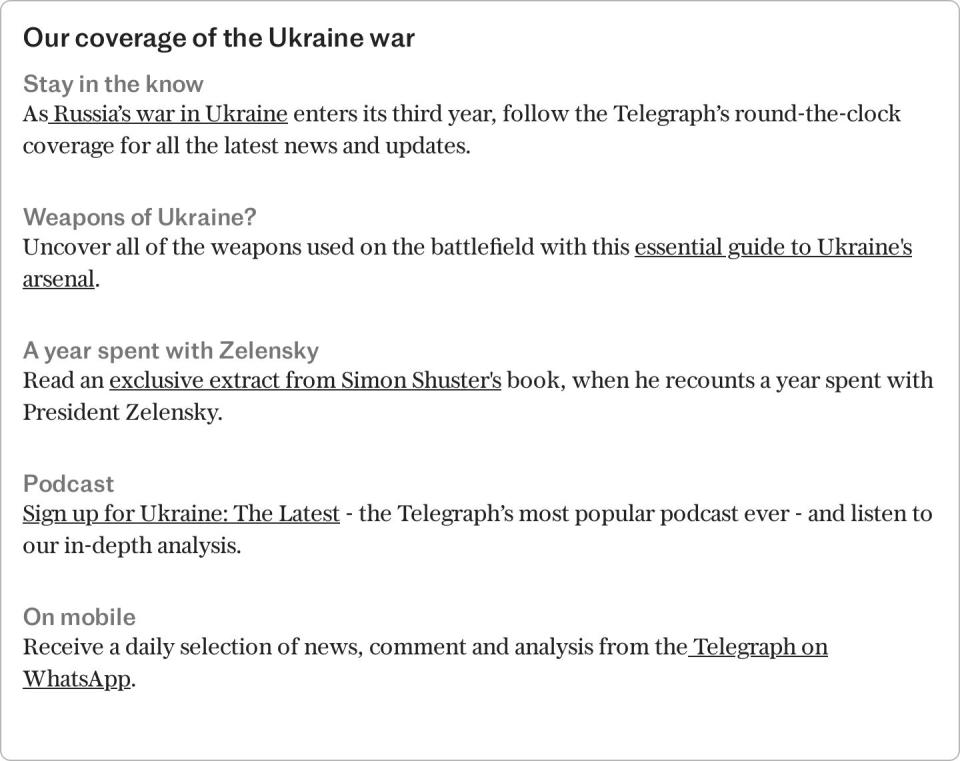A 24-year-old Ukrainian policewoman was “starved, beaten and abused” as a prisoner of war by Russian forces, her mother said as she was released after two years in captivity.
Maryana Checheliuk, an investigator with the National Police of Ukraine, was taken prisoner after being caught up in the siege of Mariupol’s Azovstal steel works.
Her full story was recounted to The Telegraph magazine by her family last year, who told how she had been forced through a Russian filtration camp and then blocked from returning home.
On Friday, Ms Checheliuk was released in a prisoner exchange, after enduring years of severe mistreatment, including being starved, beaten and abused. She appeared frail as she finally arrived back on Ukrainian soil in tears.
In her first phone call to her family after being released, Ms Checheliuk said: “Mummy, I’m home.”
Her mother replied: “My lovely and dear sunshine, we finally got this day.”

In March 2022, Ms Checheliuk sought refuge from Russian bombardment with her younger sister in the walls of Azovstal steel works but became trapped by the fighting.
On May 1, the sisters left the site, believing a deal had been brokered to extract civilians and escort them to Kyiv-controlled territory.
Instead, they were ushered onto buses by Moscow’s forces and taken 160 miles away to a Russian filtration camp in Bezimenne. During interrogation the soldiers learnt of Ms Checheliuk’s profession.
Alina, her sister, told The Telegraph in February 2023, recalling how the pair became separated. “Maryana was so nervous she started shaking, and I got so mad.
“I started crying, I kept saying, ‘Give me my sister back’.”
Over the course of the next two years, Ms Checheliuk was held in a prisoner of war camp in Olenivka and detention facilities in Taganrog and Mariupol, where her health rapidly declined.
Natalya Checheliuk, her mother, said her daughter became “very ill” and developed bronchitis. “Despite treatment… her health did not improve. She lost a significant amount of weight, her immune system weakened, her hair began to fall out, and she suffered from amenorrhea [an inability to menstruate],” Mrs Checheliuk said.
Ms Checheliuk wrote a poem for her mother during her captivity, which she read back on Ukrainian soil.
“I long to see you mother, to tell you how it was for me there / How I yearned for your eyes, how I wanted to end my life / How I endured all the pain and agony, how I trembled with fear / How every scream and knock made my own name from my head disappear,” she wrote.
“Maybe I’ll come back to you, mother / No, I will come back, hear? I’ll come at dawn in the morning, in your heart you will feel me near.”


Source Agencies

